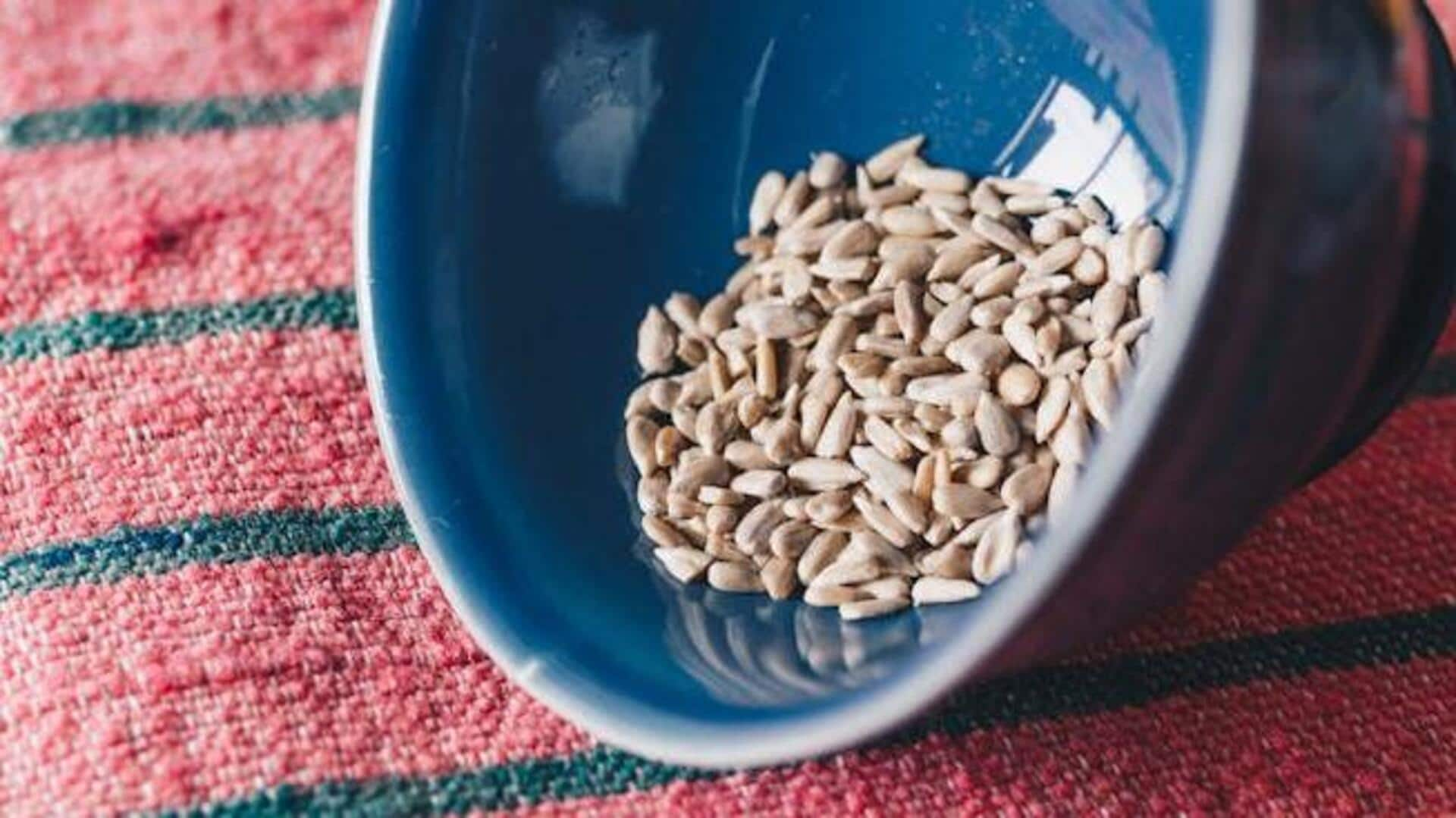
Sunflower seeds: Underrated snack your body will thank you for
What's the story
Sunflower seeds are becoming an ideal replacement for salted potato chips for those looking for healthy snack options.
Loaded with nutrients and a delightful crunch, these seeds make a great option for the health-conscious.
Unlike chips, sunflower seeds give the body necessary vitamins and minerals minus the extra salt and unhealthy fats.
Here's why you should choose sunflower seeds over salted potato chips.
Nutrients
Nutrient-rich composition
Sunflower seeds are loaded with essential nutrients like vitamin E, magnesium, and selenium.
Vitamin E is an antioxidant and helps protect cells from damage. Magnesium helps in muscle function and bone health, while selenium aids in supporting the immune system.
Unlike potato chips, which are mostly empty calories with no nutrition, sunflower seeds provide these important nutrients that keep you healthy.
Sodium levels
Lower sodium content
One of the biggest benefits of sunflower seeds is that they are low in sodium than salted potato chips.
High sodium consumption is associated with higher blood pressure and heart disease risk.
Naturally, sunflower seeds have less sodium, which makes them a healthier option for those keeping an eye on their salt intake.
By opting for sunflower seeds instead of regular chips, one can have a tasty snack without risking their heart.
Fat types
Healthy fats over unhealthy ones
Sunflower seeds have healthy fats such as polyunsaturated and monounsaturated fat, which are good for the heart when consumed in moderation.
These fats may help reduce bad cholesterol levels in the body.
Meanwhile, most potato chips are fried in oils rich in saturated or trans-fats, which affect heart health over time.
Affordability
Cost-effective snacking option
Sunflower seeds serve as a cheaper source than branded potato chips, which can be more expensive due to packaging and branding.
Choosing bulk bags of raw, unsalted sunflower seeds from local grocery stores saves money and offers health benefits.
These cost about $5 per pound, depending on where you live.